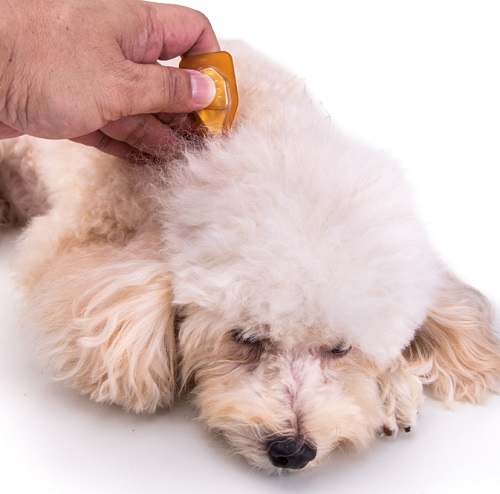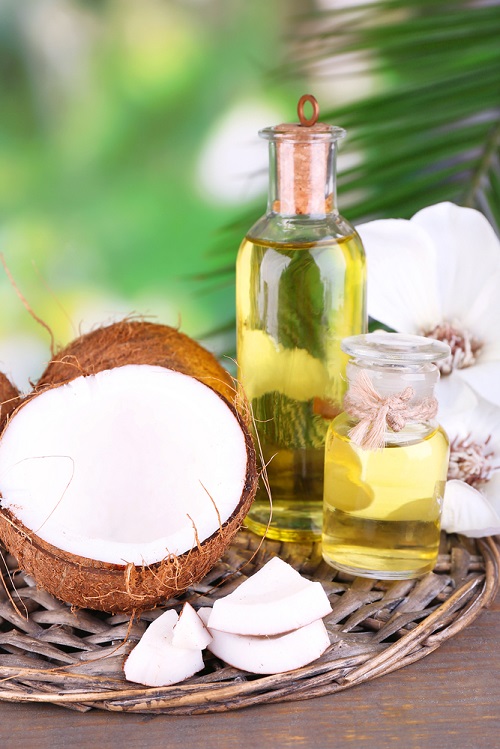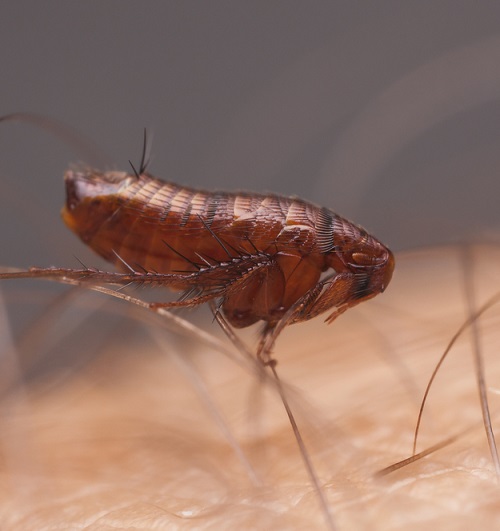Does coconut oil kill fleas on humans and pets? Learn in detail about this secret remedy against flea eradication!
Do you also want to get rid of these pesky parasites, but you don’t want to use harsh chemicals or expensive treatments? You’ve heard that coconut oil can kill fleas, but is it true? Or is it just another myth that sounds too good to be true? In this article, we will investigate- Does Coconut Oil Kill Fleas? So let’s get started.
Does Castor Oil Kill Demodex Mites? Click Here To Read More
What Are Fleas?
Fleas are small, wingless insects that feed on the blood of mammals and birds. They have a flattened body, a piercing mouthpart, and powerful hind legs that help them to jump long distances.
These insects are not picky about who they bite as long as they are warm-blooded and can cause you and your pets to itch, swell, and get sick. Some of the illnesses they can spread are very serious, such as plague, typhus, and cat scratch fever.
Does Coconut Oil Kill Fleas?
No, coconut oil does not kill fleas.
However, its lauric acid content can act as a flea deterrent, especially on a pet’s skin or fur. This natural oil may suffocate adult fleas upon direct contact, but it is less effective against flea larvae and eggs. So, do remember that while it can provide temporary relief and act as a mild repellent, it is not a standalone solution to complete flea eradication.
Does Castor Oil Kill Candida? Read About It Here
How Does Coconut Oil Repel Fleas?
Coconut oil emerges as a surprisingly simple yet effective method for combating fleas, thanks to its unique composition. The fatty acids in coconut oil, making up about half of its content, deliver a potent insecticidal punch. These fatty acids have the capability to break down the protective exoskeletons of fleas, disrupting their respiratory functions and leading to their demise.
Learn How To Kill Lice Using Castor Oil Here
How To Use Coconut Oil To Kill Fleas?

Coconut oil is a simple and effective way to repel fleas. Here are some easy steps to follow:
- Start with virgin or unrefined coconut oil – it’s natural and pet-friendly.
- First, do a patch test on your pet to ensure there’s no allergic reaction.
- Massage a generous amount of coconut oil into your pet’s coat. Pay special attention to flea hotspots like behind the ears and near the tail. Create a light spray mixture of coconut oil and water, and spritz it around your pet’s hangout spots.
- Use a fine-tooth comb to gently remove fleas and their eggs from your pet’s fur. After combing, you can either give your pet a bath or just wipe off the excess oil.
- If fleas are stubborn, you might need to repeat this process every few days.
- A little coconut oil regularly can help keep fleas away, especially when they’re most active.
- Regular vacuuming and washing of pet bedding are key in stopping fleas from coming back.
- If fleas persist or your pet seems uncomfortable, it’s time to consult your vet.
Alternatives To Coconut Oil To Kill Fleas
- Apple Cider Vinegar: Its acidity and potent smell make the environment unfavorable for fleas. However, always dilute with water to ensure it’s gentle on your pet’s skin.
- Essential Oils: Some essential oils like lavender, peppermint, and cedarwood can effectively repel fleas. Don’t use more than 4-5 drops in one cup of water to avoid irritation.
- Diatomaceous Earth: This natural powder is abrasive to fleas’ exoskeletons, causing them to dehydrate and die. Use food-grade diatomaceous earth and apply sparingly to avoid respiratory issues for both pets and humans.
- Herbal Flea Collars: Look for flea collars infused with natural herbs like neem, citronella, or eucalyptus, which repel fleas without harsh chemicals.
- Rosemary Flea Dip: Boil fresh rosemary in water, let it cool, and then spray it on their skin.
Precautionary to Take
- Always perform a patch test on a small area of your pet’s skin before applying coconut oil extensively to check for any allergic reactions.
- Ensure you’re using pure, organic coconut oil without any added chemicals or fragrances that could potentially harm your pet.
- Consult with your veterinarian before using coconut oil, especially if your pet has any existing skin conditions or is on medication.
- Apply coconut oil sparingly and evenly on your pet’s fur, avoiding sensitive areas like eyes, nose, and genitalia.
- Keep an eye on your pet for any adverse reactions, such as excessive itching, redness, or swelling, after applying coconut oil.
- If using coconut oil alongside other flea treatments, check for potential interactions or consult your vet for advice on combining treatments safely.
- Regularly clean your pet’s bedding and living areas to prevent re-infestation of fleas, as coconut oil alone may not provide long-term protection.



